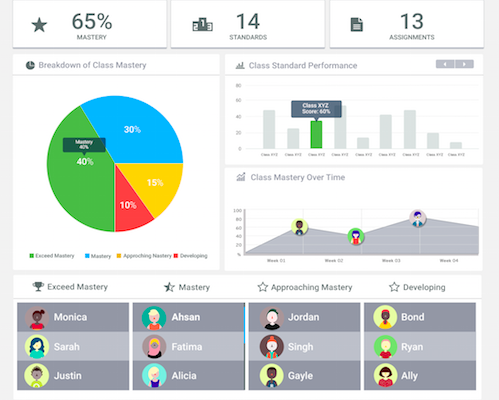Criterion-Referenced Assessment: Everything You Need to Know

This method of assessment has been generally favored by teachers in comparison to norm-referenced assessment. Here, students are evaluated to determine their levels of expertise by displaying their knowledge levels in those areas. Instead of conducting a peer-to-peer assessment, students’ results are graded against their previously displayed knowledge levels.
Teachers use this mode of assessment to find out which particular concepts the student has learned. For example, an elementary school teacher can use criterion-referenced assessments to evaluate how well her students have learned the concepts of adding fractions or using the parts of speech.
Since such tests determine the students’ grasp of particular skills and concepts, they are likely to be lengthy. For instance, a criterion-referenced test can be designed with 100 total points where students receive points for every item they complete correctly.
In their regular classroom work, teachers use criterion-referenced assessments as the most common type of evaluation method. They create these tests based on their school’s curriculum and the expected learning outcomes in a specific subject area.
Criterion-referenced assessment acts as a significant basis for engaging students with the learning process. If done well, such tests can:
· identify what’s valued in a curriculum and ensure what’s measured by the test is the same as the knowledge, skills, and understandings defined by the anticipated learning outcomes
· provide a shared language between teachers and students
· enable assessment of how well students have achieved the targeted learning outcomes
· pave the way for the identification of learning, teaching, and assessment practices that may require review
This mode of assessment can also make students understand what’s expected from them through valid, transparent, and reliable judgments about their test results. At the same time, teachers can help them understand what’s required for improvement on their future assessments by providing students with relevant feedback about the quality of their work.
The process involved in criterion-referenced assessment is transparent for students, and the grades they get for a unit can be traced to their exact performance on each of the scheduled tasks. Additionally, such tests enable reporting of student progress or achievement based on a series of key criteria rather than as a solitary percentage or grade. However, to make such tests effective, the assessment criteria for every task must be aligned with both the planned learning outcomes of the unit and course, along with the type of assessment the task involves.






